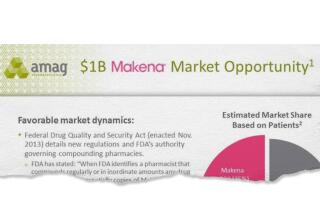Report: Bayer Held Back on Drug Dangers
- Share via
Another pharmaceutical company may have concealed safety information about a dangerous drug -- this time Bayer and its once-popular cholesterol medication Baycol -- according to a report in a prominent medical journal.
Baycol was pulled from the market in 2001, but an analysis released Monday by the Journal of the American Medical Assn. argued there were strong indications of its dangers three months after its introduction in 1998.
The report adds to concerns that the Food and Drug Administration’s drug monitoring system is too lax. The FDA is being criticized for its handling of Vioxx, the arthritis drug that remained on the market after concerns were raised that it increased the risk of heart attacks and strokes. Its manufacturer, Merck & Co., pulled Vioxx off the market in September.
Baycol belongs to a class of cholesterol-lowering drugs known as statins, which have been shown to reduce the risk of heart attacks, but have also been linked to a toxic muscle degeneration known as rhabdomyolysis, which can cause kidney problems and death.
Baycol had by far the highest rate of rhabdomyolysis of any statin, said Dr. Bruce Psaty, a professor of medicine and epidemiology at the University of Washington and the report’s coauthor.
In a response to be published in the Dec. 1 issue of JAMA but released early with the other reports, a lawyer for Bayer, Joseph Piorkowski, questioned the objectivity of the authors, who had served as expert witnesses in lawsuits against the company.
Piorkowski argued that muscle degeneration was a known risk of all statins, that FDA surveillance had worked effectively, and that the company’s conduct “was responsible, appropriate and consistently motivated by concern about the safety and welfare of patients.”
The dangers of Baycol, known generically as cerivastatin, cast suspicion over all statins. But a separate study in the same issue of JAMA analyzed data from 250,000 patients who took statins between 1998 and 2001 and showed that three of the most common -- Lipitor, Pravachol and Zocor -- proved to be relatively safe.
The risk of the rhabdomyolysis rose slightly when combined with medications known as fibrates, which lower triglyceride fats and are often prescribed in conjunction with statins.
Baycol, taken alone, posed 10 times the risk of other statins, the study said. When taken with fibrates, the danger was enormous: 10% of patients got the muscle disorder.
The study was led by Dr. David J. Graham, the FDA scientist who told a Senate panel last week that his agency was failing to monitor the safety of drugs it had approved.
His analysis did not look at the most powerful statin, Crestor, which was introduced last year. Graham has said that Crestor should be studied further. Its manufacturer, AstraZeneca, has stated that the drug is safe.
Dr. Benjamin Ansell, a cholesterol expert at UCLA, said that the risk posed by statins was far outweighed by their benefits. “More people die every month from aspirin, which is considered to be relatively safe, than have ever died from the statins,” he said.
During clinical trials to win FDA approval for Baycol, there were no signs of serious side effects. When the drug was released in February 1998, it carried a standard warning that statins had been linked to muscle degeneration.
But in the first three months of sales, seven cases of rhabdomyolysis were collected through the FDA’s adverse-event reporting system. Six of the patients had also been taking a fibrate, according to Psaty.
Psaty, whose analysis was partially based on internal Bayer documents made public during a lawsuit, said the six cases should have been a serious warning.
“There were opportunities to advance science and protect patients that were missed,” he said.
In December 1999, Bayer changed the label to warn against an interaction with the fibrate gemfibrozil.
By the time Bayer removed the drug in 2001, the number of rhabdomyolysis cases was estimated to have reached the tens of thousands. By this fall, the company had settled 2,861 lawsuits over Baycol.
A JAMA editorial questioned the FDA’s system of monitoring drug safety. The editors said the FDA relied too much on the drug companies to collect information about dangerous side effects of their products. They supported calls for an independent body to monitor drugs on the market.







